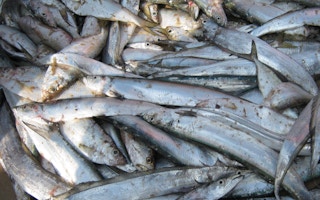The share prices of seafood companies may increase if they are certified by eco labels, a new study published in Marine Resource Economics has suggested.
A company’s share price increases by an average 2.6 per cent 20 days after certification by the Marine Stewardship Council (MSC), a sustainable seafood certifier, found a study by Spain’s University of Cantabria.
The share price rise was higher in companies with lower profitability and sales, as investors anticipated that certification could result in an increase in their sales and profits, according to the study’s authors.
MSC’s chain of custody standard tracks and separates certified seafood fish from non-certified seafood during the journey from fishery to shop. The MSC label is distinguishable by a blue tick, and is world’s largest fisheries certification programme.
Dr José Fernández Sánchez, co-author of the paper and economics professor at Cantabria University, said that the study should help to resolve the concern among seafood producers that sustainability measures sap profits.
“The results allow us to state that investors respond positively to sustainable schemes in fisheries, producing a gain for the companies in the financial markets. This confirms our hypothesis that ‘it pays to be green,’” he said.
“
A fish may caught ‘sustainably’, but they can still be treated horrifically.
Haven King-Nobles, co-founder, Fish Welfare Initiative
However, there is increasing scrutiny over sustainability claims from eco labels such as MSC, particularly since a documentary, Seaspiracy, highlighted the impact of unabated overfishing and challenged the notion of sustainable seafood.
The documentary claimed that achieving MSC certification was too easy for producers to attain, that the certification body was not independent of industry, and certified fisheries have unacceptable levels of bycatch — animals such as dolphins, whales and sharks killed unintentionally by fishing nets. MSC has refuted these claims. Seaspiracy’s producers have stood by their findings.
The welfare of fish certified by eco seafood labels is also coming under the spotlight as momentum gathers behind campaigns that draw attention to the complex inner lives of fish and the material risks to fish producers posed by the poor treatment of aquatic animals. High mortality rates from poor fish welfare will hurt investments in aquaculture and cause reputational damage, according to a report published in July.
Fish Welfare Initiative (FWI), an animal welfare group, said that while the University of Cantabria’s study provided evidence of growing investor concern in seafood sustainability, investors and consumers should not assume that fish certified by the MSC were treated humanely.
“MSC currently has zero animal welfare standards. This means that virtually all of the fish certified by the MSC still face asphyxiation, crushing, rapid depressurisation, extreme crowding, and/or harpooning. And unlike many farmed land animals, virtually all of the MSC’s certified fish are still killed without prior stunning,” said Haven King-Nobles, FWI’s co-founder.
Rival seafood certification schemes such as Friend of the Sea (FOS), Aquaculture Stewardship Council (ASC), and Best Aquaculture Practices (BAP) have already developed animal welfare standards, King-Nobles noted.
MSC said it was focused on tackling overfishing and safeguarding the future of species and habitats, not animal welfare. “Although the issue of humane harvest is currently outside of the MSC’s remit, we know that public awareness of this issue is growing,” said MSC’s chief science and standards officer, Dr Rohan Currey.
“Under our current requirements, certified fisheries should try to minimise impacts on what they catch – including birds, mammals and fish. This often includes – for example – using the right-size mesh in nets to allow small fish to escape,” said Currey.
The organisation said it is the only wild-capture fisheries certification programme that meets the requirements set by the UN Food and Agriculture Organisation, Global Sustainable Seafood Initiative (GSSI) and standards non-profit International Social and Environmental Accreditation and Labelling Alliance (ISEAL), and most of the seafood schemes that consider animal welfare relate only to aquaculture.
“As over a third of the world’s fish stocks are unsustainably fished, and this trend continues to worsen, we can only see the importance of environmental sustainability and safeguarding our oceans increasing on the public and political agenda – and therefore demand for MSC certified seafood increasing,” said Currey.
MSC, which was founded by World Wide Fund for Nature (WWF) and Unilever in 1997 in response to the collapse of the Grand Banks cod fishery in Canada, certifies more than 400 fisheries worldwide, or around 14 per cent of global fish landings. Almost 90 per cent of global marine fish stocks are now fully exploited or overfished.

















